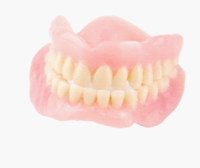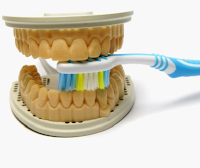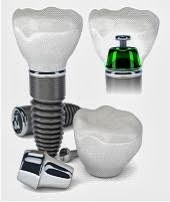This three-part article series provides an explanation of the most common oral conditions, ailments and diseases that affect Americans today, from cold sores to gum disease.

Welcome back to our three-part article series on the 12 most common oral ailments, conditions and diseases. Over the course of the first two article posts, professionals of dental implants in Pueblo CO have explained the following 8 problems to us:
1. Cold sores or fever blisters
2. Oral thrush
3. Black hairy tongue
4. Canker sores or apthuous ulcers
5. Leukoplakia
6. Oral cancer
7. Temporomandibular joint disorders
8. Chipped teeth
We still have another 4 to go, so let’s wrap this series up!
1. Cold sores or fever blisters
2. Oral thrush
3. Black hairy tongue
4. Canker sores or apthuous ulcers
5. Leukoplakia
6. Oral cancer
7. Temporomandibular joint disorders
8. Chipped teeth
We still have another 4 to go, so let’s wrap this series up!
9. Top Oral Problems: Gum Disease
With close to 80% of American adults presenting with some form or stage of gum disease, this oral ailment is a pervasive problem that is actually very easily prevented. “Gum disease is a bacterial infection of the gums caused by poor oral hygiene, a lack of professional attention and bad habits such as tobacco use, excessive drinking and drug abuse,” says an oral surgeon in Colorado Springs.
“Periodontitis, or gum disease, is caused by bacteria that have migrated deep down into the tight spaces between the teeth and the gums where they form pockets of infection. The acids produced by the bacteria corrode the tooth roots, break down the structures and ligaments that keep the teeth in the jaw and deteriorate bone health, which is why gum disease causes tooth loss.”
Timely treatment is essential because gum disease has been linked with several other whole-body ailments, including diabetes, stroke, cardiovascular disease, Alzheimer’s and respiratory disease.
10. Top Oral Problems: Aspirin Burn

It’s a common old wives tale… tucking an aspirin in your cheek against a painful tooth is a sure fire way to get rid of a toothache. Well, according to dental implants specialists in Pueblo CO, it’s actually a sure fire way to damage your tooth and the surrounding soft tissue! “Aspirin is acidic, which softens dental enamel and makes it more vulnerable to erosion. It also irritates and inflames your gums and can even burn a rough lesion into your cheek.”
Does it at least get rid of the toothache?
“No, aspirin blocks the transmission of pain signals to the brain and needs to be ingested. It doesn’t work when applied topically, so you’re wasting your time and doing unnecessary damage to your mouth,” says an oral surgeon in Colorado Springs.
11. Top Oral Problems: Tooth Decay and Oral Abscesses
Poor oral hygiene causes all sorts of nasty problems and oral ailments. A diet high in sugar and habits such as tobacco use, drug abuse and excessive drinking can also mess up the health of your teeth and gums. “Dental cavities, tooth discoloration and abscesses are all linked with a sloppy oral hygiene routine, which is essential for preventing infection,” say dental implants specialists in Pueblo CO. “Never ignore persistent tooth aches, gum inflammation and swelling as it might be a sign of serious infection, which can easily enter the bloodstream.”
12. Top Oral Problems: Bad Breath
Bad oral hygiene also leads to that greatest of social deterrents… bad breath. “Halitosis is caused by the unchecked accumulation of oral bacteria and food debris at the gum line, in, on and between your teeth and on your tongue. Brushing your teeth twice a day simply isn’t enough to keep your breath fresh. You should be brushing two to three times a day for at least two minutes at a time and make sure to floss before you go to bed at night. You also might want to incorporate an anti-bacterial mouthwash into your routine,” advises an oral surgeon in Colorado Springs. “Drink plenty of water; see your dentist and oral hygienist regularly and you should be able to keep your breath (and teeth) in beautiful minty condition.”
 Leukoplakia is a whitish patch or plaque that forms in the mouth and can be scraped off. It generally forms in reaction to an irritation, such as tobacco (smoked or smokeless), alcohol, rough teeth or dentures that don’t fit well. These patches are completely painless and can be treated by removing the cause of irritation. Having said that, persistent leukoplakia can be a sign of cancer, so you should see your Pueblo dentist CO for a proper diagnosis if you present with this problem.
Leukoplakia is a whitish patch or plaque that forms in the mouth and can be scraped off. It generally forms in reaction to an irritation, such as tobacco (smoked or smokeless), alcohol, rough teeth or dentures that don’t fit well. These patches are completely painless and can be treated by removing the cause of irritation. Having said that, persistent leukoplakia can be a sign of cancer, so you should see your Pueblo dentist CO for a proper diagnosis if you present with this problem. Our teeth are made from the hardest substance in our bodies and yet they are not invulnerable. We tend to forget this when we do stupid things like use them as tools for punishing tasks, such as chewing ice, forcing open containers, tearing packaging and grinding them. “These tasks and habits can cause the enamel of the teeth to become chipped or worn down, exposing the softer and more vulnerable dentine underneath,” say Colorado Springs dental implants specialists.
Our teeth are made from the hardest substance in our bodies and yet they are not invulnerable. We tend to forget this when we do stupid things like use them as tools for punishing tasks, such as chewing ice, forcing open containers, tearing packaging and grinding them. “These tasks and habits can cause the enamel of the teeth to become chipped or worn down, exposing the softer and more vulnerable dentine underneath,” say Colorado Springs dental implants specialists.
 “Black hairy tongue is caused by poor oral hygiene, antibiotics, tobacco-use and medications that cause dry mouth,” say Colorado Springs family dentists. “Thankfully, it can almost always be treated with good oral hygiene and a tongue scraper.”
“Black hairy tongue is caused by poor oral hygiene, antibiotics, tobacco-use and medications that cause dry mouth,” say Colorado Springs family dentists. “Thankfully, it can almost always be treated with good oral hygiene and a tongue scraper.”






